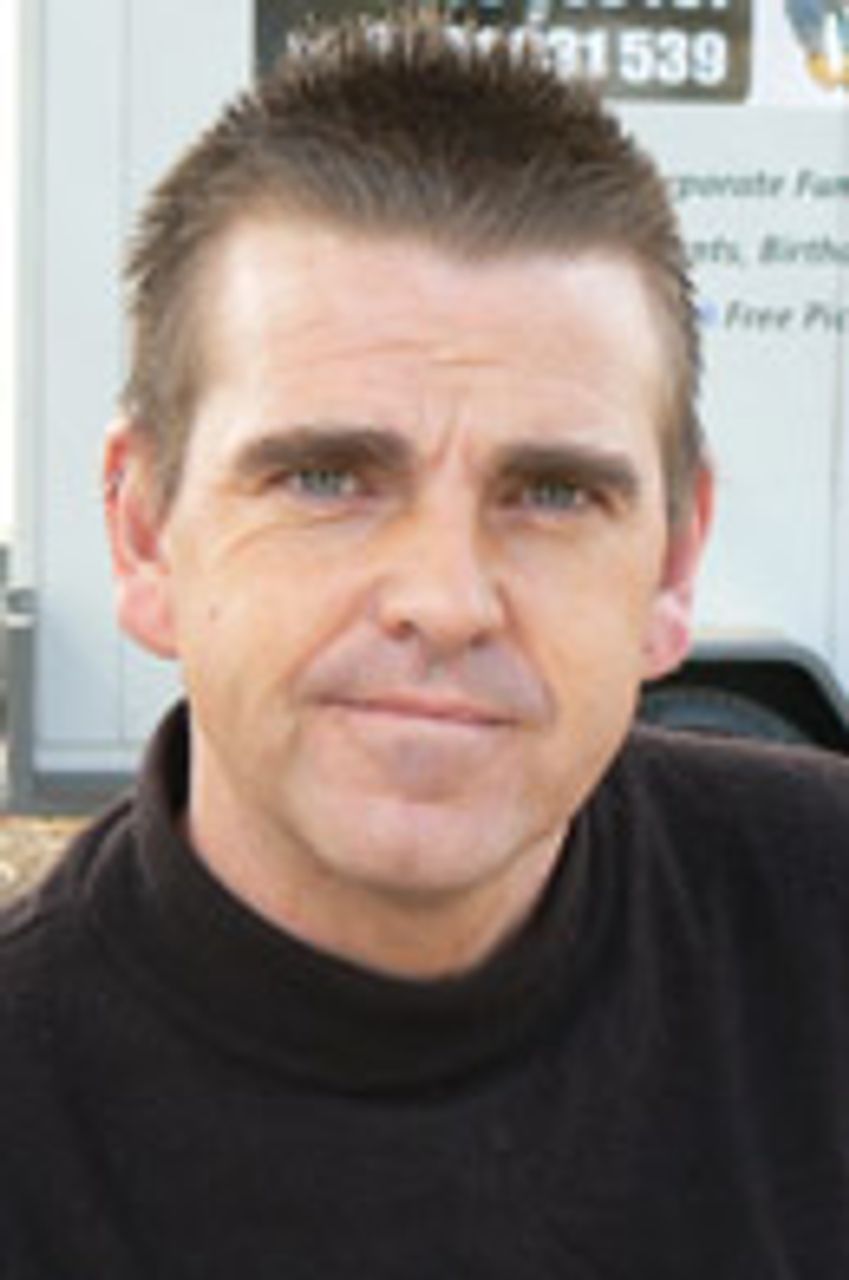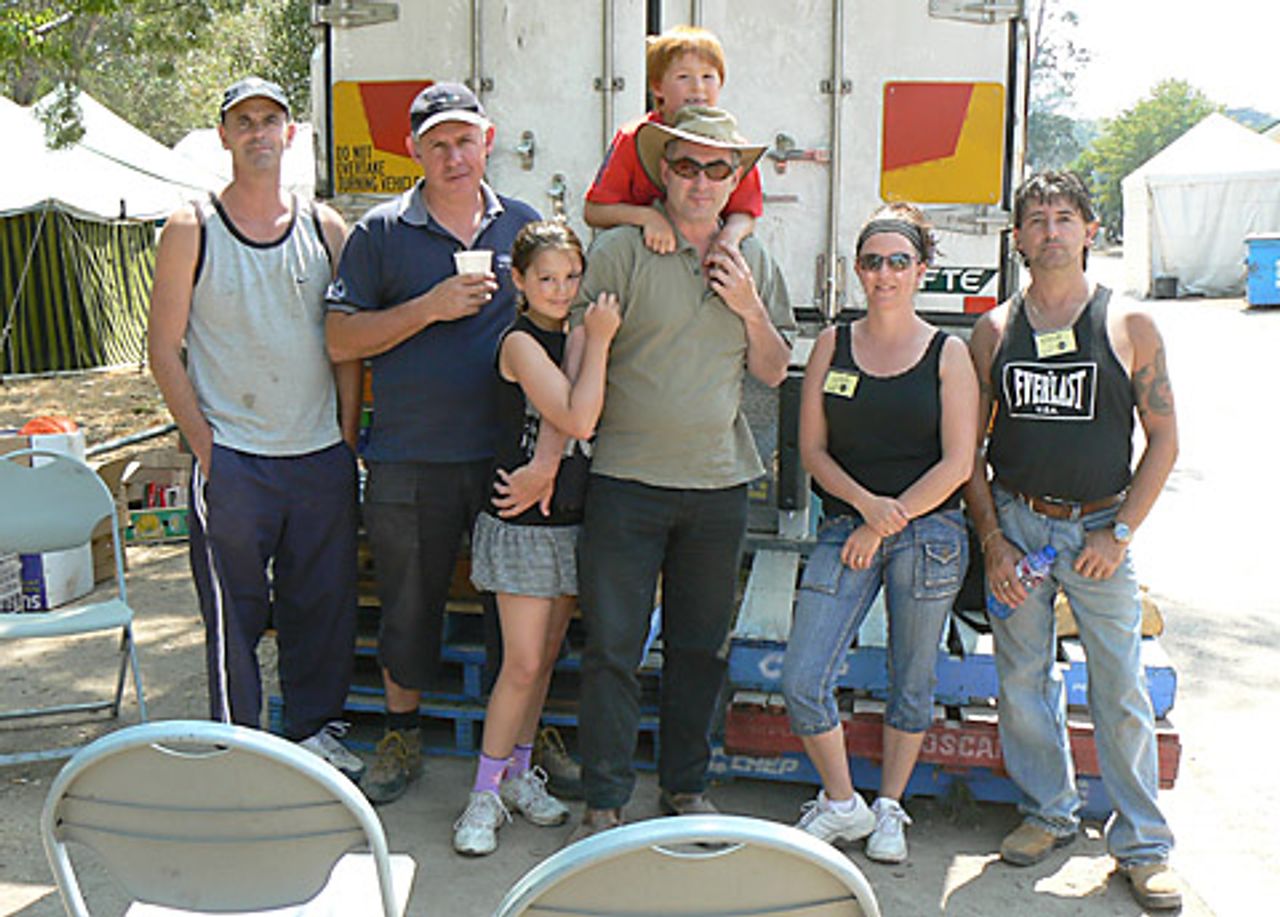Five large bushfires are still burning out of control across the state of Victoria more than two weeks after the February 7 "Black Saturday" fires. Two severely burnt bushfire victims have died at Melbourne's Alfred hospital in the past few days, taking the official death toll to 210.
With extreme heat and wind conditions expected to return this Friday, thousands of people are again facing serious danger. Several of the fires have been burning since February 7; others have flared since.
About 400 fires ignited on Monday in winds of up to 75 km/h and a top temperature of 35 degrees. A house was destroyed at Belgrave Heights in a fire that burned as close as 40 kilometres to the centre of Melbourne. Schools were evacuated and many residents abandoned their homes. There were reports of traffic accidents and chaos as people fled the area. Just further north, in Lilydale, people evacuated to the town oval from the surrounding hills, and the town of Warburton was almost deserted.
Amid mounting criticism of the government's "stay and defend or leave" policy, many people have abandoned plans to stay and try to fight the fires as individuals.
Meanwhile, the estimated 7,000 people who have lost their homes are becoming increasingly frustrated about living in tents for more than two weeks. At least 2,029 homes have been destroyed in 78 towns so far this summer. Insured fire losses are forecast to top $1 billion, but it is widely expected that a large percentage of fire-affected homes were under-insured or not insured at all.
Last weekend, WSWS teams visited the Whittlesea Relief Centre and also spoke to people attending the National Day of Mourning ceremony at Rod Laver arena in Melbourne. We found increasing criticism of government and other authorities, particularly for the lack of early warnings, and scepticism in the state government's planned Royal Commission into the fires.
 Paul Davis
Paul DavisPaul Davis, an electrician, who has lived in Humevale, near Whittlesea, for 10 years, said the lack of a warning system could have been responsible for some of the deaths on February 7.
"Due to our location we have good views. I saw smoke first of all, and so I turned on the radio and found out that the ABC was behind in their updates. They were behind by 15-20 minutes in the progress of the fires. This could have a massive impact.
"People in Kinglake couldn't see nearly as far. The winds were in one direction and were having a flame-ball effect. If people had known earlier, maybe more could have made it to Whittlesea. That's my major beef about it—the fact that there was no early detection, and no getting the message across earlier.
"The leave or stay policy is a Catch-22. It depends on where you are. In many places, to stay and fight is rubbish. This is a high-risk area, semi-rural. My real concern though, is that when the fire first started, there should have been an audible warning, a siren. It used to go off to signal there was a fire in your area."
Davis also condemned the lack of fuel reduction preparations. "The restrictions on clearing are crazy. In a dry area with 40º C, it's just crazy. There also hasn't been any back-burning here to my knowledge.
"The next hurdle will be for people without insurance. I feel for them. And for those with insurance, how much is covered? The insurance companies might be a little tighter than they're letting on. The fine print will start to come out."
 Volunteers in Whittlesea
Volunteers in Whittlesea
Nina Kiri, a chef who has been volunteering at Whittlesea, making 1,000 lunches and 750 other meals a day, raised a number of concerns, both about the lack of fire warnings and the poor relief organisation.
"The fire sirens have been stopped. They used to be sounded as a practice run. There was no chance for people to activate their fire plans. Imagine if this had happened on a week day—parents would have been separated from their children.
"Something needs to be said. The media only get people who say what they want to be said. There is a real spirit among the volunteers. We don't trust the Red Cross and the Salvation Army. They haven't had a clear understanding of what's going on. The data base of volunteers is not being used effectively. People, chefs for example, are being turned away instead of being used properly.
"There is no central organisation; nothing that makes sense to us. I have large-scale catering skills. When I came, there were only trailer fridges. I said they were inadequate; that they had to get in big refrigerated trucks. The government is happy all these volunteers are here working—it means they don't have to pay people."
Eddy Blanks, one of Kiri's fellow volunteers, added: "The governments sit on their hands. They wouldn't know what is going on in the country areas. The Royal Commission is a waste of time. They get some judge, there'll be pages of transcript and then they'll just refer it on to another committee. Nothing will be decided.
"They are incapable of planning anything here. Last week, there were meetings after meetings, between the Red Cross, the Salvos and local government. They got nowhere. The women working in the kitchen do not belong to any organisation. They're local people, who saw what they had to do and did it. Any logistical set up has been run and organised without drama by volunteers."
Blanks raised questions about the insurance companies and the much-publicised visits to the fire-devastated areas by Prime Minister Kevin Rudd and Governor-General Quentin Bryce.
"A big issue is that people have been told by insurance companies there will be at least six months before permits to rebuild are issued. You'll be told what materials you can use, and new requirements will be for bunkers with oxygen. It is doubtful that insurance will cover the cost of replacement, much less the new requirements.
"Battling families will be expected to obtain checks on their bunker oxygen every 12 months. Who is going to pay for it? All the battlers up there with only basic insurance are going to be facing bills for thousands of dollars extra. If they can't come back, Kinglake will be a ghost town.
"The government is over controlling the [relief] money. Some of the people round here haven't received anything yet. Why is the governor-general coming round here? Why is Kevin [Rudd] coming with his prepared speech? All the money that is spent to escort them around!"
Outside the Rod Laver arena ceremony, Bob Tasevski, a spare parts manager, said: "I saw a gentleman on TV, he was an expert in firefighting and fire catastrophes. He warned the government and the shires of what could happen without clearing.
"He put in a submission to the government but nothing came of it. They listened but they didn't do anything about it. They always have money for overseas trips but when it comes to people they just never seem to care about it. It's the same old thing. How many times do people have to get killed? This always happens with train crossings, and someone always ends up getting killed.
"For a day with heat and hot winds there should have been some sort of a warning system."
Maree Heggerty, a pensioner who had been assisting a friend who cares for fire-affected animals, commented: "There is not enough training and education of people. It is left to volunteers all of the time and I just think that the government is lacking.
"It all comes down to politics, to budgets, to monetary figures, and so people become secondary to the government's budgets. Who is going to pay? That is one of the most disgusting aspects of this tragedy.
"It is disgusting that the early warning systems that the government had in 2005 have not been brought into practice. They tell us about what you and I should do, that we will always have fires, and we always will, but why didn't they implement the early warning system? I think it is political and financial.
"The government can spend on all sorts of things but when it comes to protecting humanity, they say there are budgetary restraints. Protecting people should be their number one priority.
"There have been inquiries and recommendations but as far as I know nothing has been implemented. We had an inquiry about the Canberra fires [in 2003] but nothing happened—everything seems to go in the dead basket."
Heggerty said she knew of an environment professor who had "put to the government that climate change would be occurring and the southern states in Australia would suffer enormous bushfires and heat and the northern states would have floods. They were predicting this many years ago—his team presented a paper outlining this and the government just filed their paper away. There were clearly warnings of what could happen but no strategies were put in place."
The authors also recommend
Australia: Few attend Rudd's much-hyped "National Day of Mourning"
[25 February 2009]
